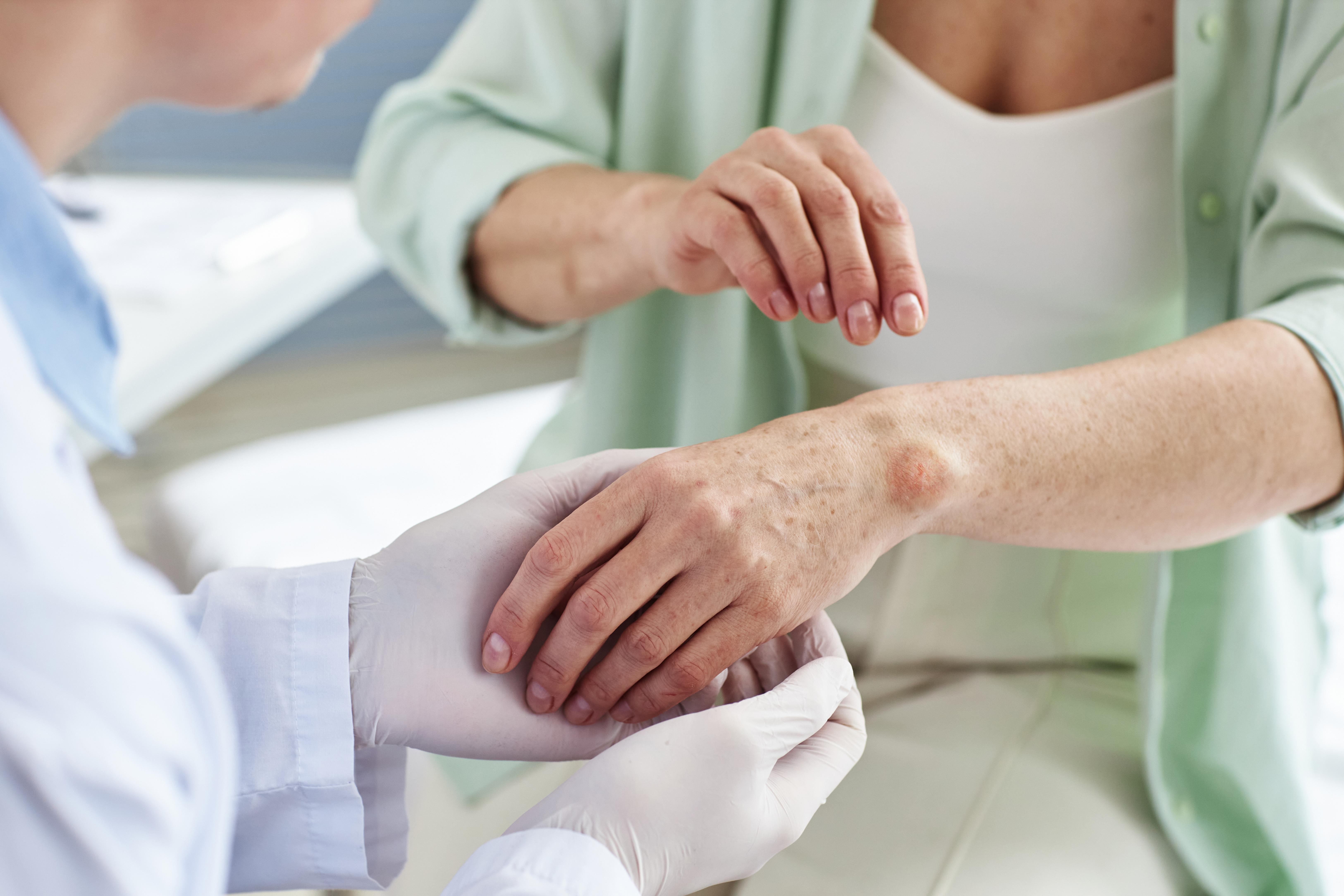The 9 Most Overlooked Symptoms of Autoimmune Illness in Women
Autoimmune diseases are a group of disorders where the immune system mistakenly attacks the body's own tissues. These conditions disproportionately affect women, often presenting with subtle symptoms that can easily be overlooked or misattributed to other causes. The complexity of autoimmune illnesses lies in their ability to mimic other diseases, making diagnosis challenging. This article aims to unveil the 9 frequently overlooked symptoms of autoimmune illnesses in women, providing a comprehensive understanding of each symptom and its potential implications. By recognizing these signs early, women can seek timely medical intervention and improve their quality of life.
1. Persistent Fatigue: More Than Just Tiredness

Fatigue is a common complaint among women, often dismissed as a consequence of a busy lifestyle or insufficient sleep. However, persistent fatigue that doesn't improve with rest might be an early sign of an autoimmune disorder. This type of fatigue is profound, often described as a bone-deep exhaustion that affects daily functioning. Conditions like lupus, rheumatoid arthritis, and multiple sclerosis frequently list fatigue as a primary symptom. Understanding that this fatigue is not typical tiredness is crucial, as it can significantly impact a woman's ability to perform everyday tasks and maintain her lifestyle.
2. Unexplained Joint Pain: Beyond Aging Aches

Joint pain is often attributed to aging or physical activity, but unexplained joint pain can be a hallmark of autoimmune diseases such as rheumatoid arthritis or lupus. Unlike typical joint pain, this discomfort may occur in multiple joints simultaneously, often accompanied by swelling and stiffness, especially in the morning. This symptom can be particularly distressing for young women who do not expect to experience such issues. Recognizing this pain as potentially autoimmune-related rather than dismissing it as normal wear and tear can lead to earlier diagnosis and treatment, preventing further joint damage.
3. Skin Changes: The Body’s Visible Clues

Autoimmune diseases can manifest visibly through the skin, offering clues that are often overlooked. Conditions like lupus can cause a characteristic butterfly-shaped rash across the cheeks and nose, while scleroderma may lead to thickened, tight skin. Psoriasis, another autoimmune condition, results in scaly, red patches on the skin. These changes can be mistaken for allergies, eczema, or other dermatological issues. Paying attention to these skin changes and seeking dermatological advice can be pivotal in identifying an underlying autoimmune disorder, as the skin often reflects internal health issues.
4. Digestive Disturbances: More Than Just a Stomach Ache

Digestive issues, such as bloating, diarrhea, or constipation, are frequently dismissed as dietary indiscretions or stress-related. However, these symptoms can signal autoimmune conditions like celiac disease or Crohn's disease. Women may experience persistent gastrointestinal discomfort that doesn't respond to typical treatments or dietary changes. These disturbances can lead to malabsorption of nutrients, further complicating health. Recognizing the potential autoimmune nature of these digestive symptoms is essential for appropriate testing and management, which can significantly improve a woman's overall health and nutritional status.
5. Cognitive Difficulties: The Invisible Fog

Cognitive difficulties, often referred to as "brain fog," can be an insidious symptom of autoimmune diseases such as lupus or multiple sclerosis. Women may experience memory lapses, difficulty concentrating, or a general sense of mental cloudiness. These cognitive issues can be frustrating and are often attributed to stress or aging. However, when brain fog persists and affects daily life, it warrants further investigation. Understanding this symptom as a possible indicator of an autoimmune disorder can lead to a more holistic approach to management, addressing both physical and cognitive health.
6. Hair Loss: A Distressing Clue

Hair loss can be a distressing symptom for women, impacting self-esteem and emotional well-being. While it can result from various factors such as stress or hormonal changes, it can also be a sign of autoimmune diseases like alopecia areata or lupus. Women may notice thinning hair or patches of baldness, which can be particularly alarming. Recognizing hair loss as a potential autoimmune symptom, rather than a cosmetic issue, encourages women to seek medical advice. Early intervention can help manage the underlying condition and possibly restore hair growth.
7. Numbness and Tingling: Nerve Signals

Numbness and tingling in the hands and feet can often be shrugged off as temporary discomfort or poor circulation. However, these sensations can be a symptom of autoimmune diseases such as multiple sclerosis or lupus, which affect the nervous system. Women experiencing persistent or recurrent numbness and tingling should consider these as potential indicators of an autoimmune disorder. Understanding the connection between these sensory changes and autoimmune activity can lead to appropriate neurological evaluation and management, potentially preventing further nerve damage.
8. Recurrent Infections: Immune System Red Flags

Frequent infections, such as urinary tract infections or respiratory infections, can indicate an underlying issue with the immune system. Autoimmune diseases can cause the immune system to become overactive or dysfunctional, making women more susceptible to infections. This symptom is often overlooked or attributed to external factors like stress or exposure to germs. Recognizing recurrent infections as a possible sign of an autoimmune disorder can prompt further investigation into immune function, leading to a more accurate diagnosis and appropriate treatment strategies.
9. Mood Swings: Emotional Turmoil

Mood swings and changes in mental health can be subtle indicators of autoimmune diseases. Conditions such as lupus and thyroid disorders can affect hormone levels and brain chemistry, leading to depression, anxiety, or mood instability. These emotional changes are often dismissed as stress-related or personal issues. Understanding the potential autoimmune link to mood swings can encourage women to seek comprehensive care that addresses both physical and emotional health. Effective management of autoimmune diseases can lead to improved mental well-being and overall quality of life.
Empowering Awareness

Recognizing the subtle signs of autoimmune diseases is crucial for early diagnosis and management, particularly in women who are disproportionately affected. By understanding and acknowledging these 9 frequently overlooked symptoms, women can become advocates for their own health, seeking timely medical advice and intervention. This awareness not only empowers women to take control of their health but also promotes a broader understanding of autoimmune diseases within the medical community. Early detection and treatment can significantly improve outcomes, allowing women to maintain their quality of life and well-being.